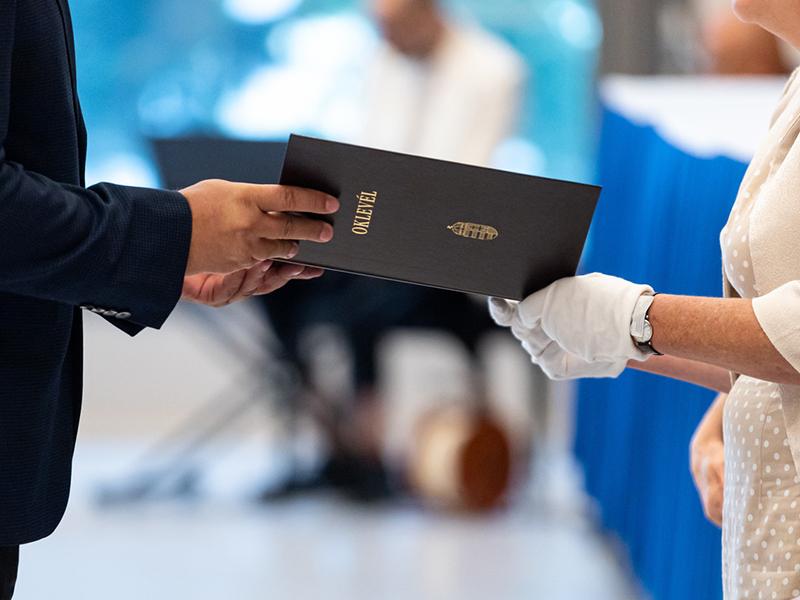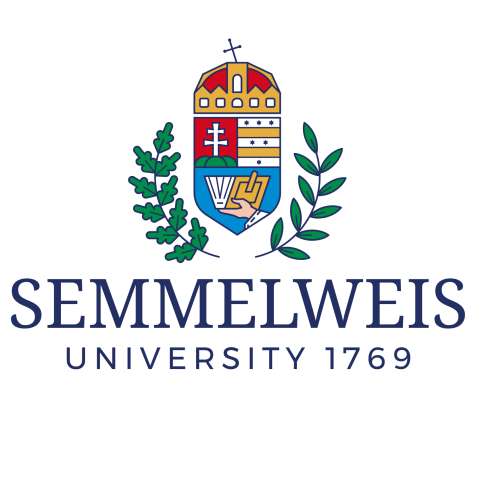
Individual consultations can help PhD students to complete their studies
The challenges that many PhD students or PhD candidates face in their studies include getting stuck in research, loss of momentum, difficulties of time management when factoring in another workplace or a family, or having troubles with accessing appropriate publication opportunities. To help with these issues, Semmelweis University’s Workgroup for Science Management (WSM) has decided to provide individual consultations for PhD students who are having difficulties with completing their doctoral thesis, as well as for those who are still thinking of starting their PhD studies. The programme also aims to train potential future supervisors.
Disproportionate drop-out rate in PhD programmes
Semmelweis University is one of the top-ranked universities in Hungary, but although in the undergraduate faculties about 90 per cent of students successfully complete their studies, the number of unfinished PhD theses is unjustifiably high in the doctoral schools. The WSM has looked at and quantified the causes of attrition and found that the difficulties students encounter in the PhD process are very diverse. Some students have problems with their research; others struggle more with publication. A student might have a huge publication record but can still become stuck in the maze of getting a PhD.
- Building resilience in students: give them roots and wings
- To improve research culture, we must change the way we measure performance
- Lessons from students on effective research supervision
Although there are rules of thumb in the individual search for a path and techniques that can be learned and applied by all PhD students, each student’s situation is different. This is why our team has decided to give one-to-one consultations.
How students can get personalised help
In the two years that WSM has been in operation, we have helped many students write their PhD theses. One of the main groups of people who come to us are the “rescued”: students who have been working on their PhD theses for many years, sometimes even decades. Another group are those who have decided to embark on a PhD but do not know how to get started. For some, the face-to-face consultation itself – that is, the opportunity to talk to an expert about their uncertainties – was a huge help. We have not yet encountered an unsalvageable thesis and, if someone has the will and diligence to complete their PhD studies, they are likely to achieve their goal with our help.
For individual consultations, students are pre-screened according to their needs to determine which of the team’s expert advisers can best help them. We see people in half-hour time slots, like a clinic appointment. In this time, we assess what the student has already done and what they still need to do; we discuss the problems, the tasks ahead, set up a timetable and agree when the next “check-up” will take place.
Tailoring the workflow
In a clinical setting, there is a set number of operations, a list of procedures to be done, but there is no such thing in a PhD, so many students don’t know exactly what pace to follow and where to go. Writing a doctoral thesis can therefore seem like a daunting task. However, if we help students break the process down into basic steps, it becomes much easier and more manageable.
Our group works with students to define the workflow, set a timetable and provide a framework for their studies. The workflow is determined by individual abilities, and students’ life situations and free time; tasks might take four to eight hours for some, and 10 to 12 hours for others. Most of our students work in patient care or in theoretical institutes, so the amount of time they can devote to a PhD varies considerably. If a student has a good time-management plan, they know exactly how far they can get with their PhD in a few months. We show them techniques and give them advice on this.
Research support and coaching service
We also provide a wide range of other support: we have links with laboratories, our language centre and statisticians, so we have the background to support students in a wide range of research areas. There is also a coaching service for people with problems related to life-path management, which can be provided in parallel with career and work organisation advice. We have tried to build a complex system that not only reflects the knowledge available at the university but can also address any problems that might arise.
Training future supervisors
In addition to helping newcomers and “rescued” PhD students, we have launched the third main component of our activities: the training of future PhD supervisors.
Looking at the statistics, we found that for many people it can take 10 to 15 years after they finish their doctoral studies to start publishing again. We wish to bridge this gap and make academic life continue after a PhD degree is gained. We want more and more PhD graduates to be able to build scientific teams around themselves and continue publishing.
Our team can select students who have the motivation and skills to become excellent supervisors with the right training during the process of their PhD research. By launching the training of future thesis supervisors, the team is planning ahead; the training of supervisors can help us contribute to the completion of many PhD theses in the future.
How personalised consultation builds a pipeline for future supervisors
A personalised consultancy can ensure that students who have not started their doctoral studies are not afraid to do so, that those who have already started do not lose enthusiasm and that the most talented ones receive further support to become good supervisors for the next generation.
PhD training is an attitude-forming activity that not only equips one’s mind for academic work but also encourages students to acquire skills that can be applied in medicine, teaching and research. It is also beneficial for a university: if more of its students have a PhD degree, it has more chance of being among the world’s best higher education institutions.
Szabolcs Várbíró is a professor in the department of obstetrics and gynaecology, and head of the Workgroup for Science Management; Judit Réka Hetthéssy and Marianna Török are both scientific advisers for the Workgroup for Science Management. All are from the doctoral school at Semmelweis University in Budapest, Hungary.
If you would like advice and insight from academics and university staff delivered direct to your inbox each week, sign up for the Campus newsletter.




